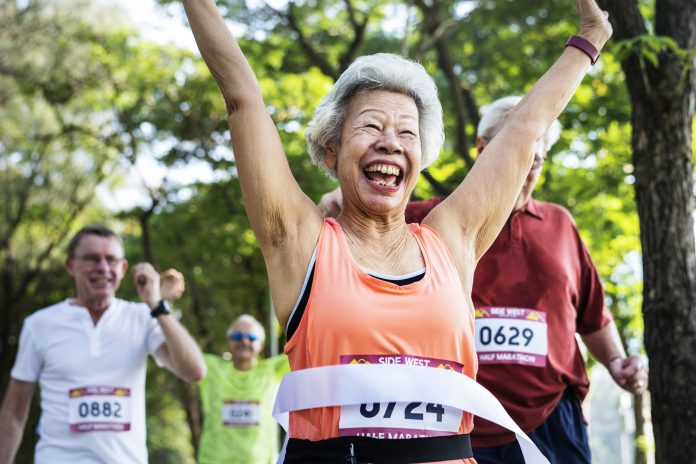Mental Health Advocate and Medical Doctor, Charlie Easmon explains why he thinks the UK is close to a health epidemic, made worse by COVID-19, and discusses the benefits that taking up exercise has for your mental health
After the London Olympics, Britain was supposed to have a great population exercise legacy but that has been lost as we now see that at least one-third of the population do no exercise at all. The couch potato has become a well-accepted term. There is nothing wrong with “Netflix and chill’ but if that is all you do your weight will increase, your muscle tone will decrease, your bones will become less strong and sadly your mind will be affected.
A 2004 study of more than 20,000 autoworkers in the USA showed that health care costs could drop by 1.5% if sedentary and moderately obese staff start doing regular exercise. Other studies have shown that if exercise is compared to pills for those with depression, those who used exercise had a greater fall in their levels of depression and the results last longer.
Yet the pandemic has fuelled the health epidemic in this country. We all joke about ‘lock-down weight’ with many people gaining weight rather than shedding the pounds over the last few months. It is easy to become unmotivated, yet exercise – no matter how tired and disillusioned you are feeling – will eventually make you feel better and will help your mental health. Exercise that makes you breath faster, your heart rate increase and that makes you sweat has been shown to give several hours of benefit for those with anxiety and low mood.
We now know some of the mechanism for these natural highs. One involves the serotonin system and the other involves the endo-cannabinoid system. The serotonin system is well known. Yet the endo-cannabinoid system is less well known – it is thanks to an Israeli researcher that we have this incredible knowledge that our body produces naturally the same products that occur in plants. Between the serotonin and the endo-cannabinoid we can help explain the natural ‘high’ that comes from exercise.
It is very easy to say people must move and exercise more – but support is needed at a local and national level. The NHS provides exercise guidance on physical exercise and confirmed the mental health and there are now plenty of exercise classes that can be streamed as well as personal instructors for those who prefer personalised 1-2-1 classes. Mental health is incredibly important and through lock-down this has become even more clear, physical exercise can help but people must feel confident and comfortable to seek motivational help. As a society, we can and should do more.
Doctor Easmon’s tips for mental wellbeing:
Your health is best managed through one word – moderation. No excess of food or alcohol and a good balance of work and exercise. If you are unlucky to have a health problem ensure you have the best doctors who see you as whole person, not just a ‘classic case of X symptom’
Healthy is as healthy does and throughout your life a positive attitude will help both physical and mental well-being. Keep those health threads together and have a ball.
Mental welfare
Sleep is the most important and precious gift. Most of us do not get enough but see if you can change that. Think about your sleep hygiene and the habits that you have before your head hits the sack.
Try to avoid screens at least one hour before you plan to sleep. Remember that alcohol can act as a stimulant.
If you are waking up early in the morning with negative and recurring thoughts this may be an early indicator of depression. If you have poor sleep seek expert advice.
Exercise
We can all make excuses but we all need to do something. Dance is exercise, walking is exercise. If your knees do not allow anything else then at least try swimming or gentle fixed bicycle exercise. Try to find at least 3 thirty-minute slots in your week where you can break sweat up and feel out of breath at the end.
Remember that a gym is not necessary.
Eating and Nutrition
Yo-yo diets do nobody any good. Stick to the basics. Avoid processed foods. Fresh, organic foods are more expensive but you need less and it is healthier. If you aren’t a cook, teach yourself a few simple dishes – check out Delia Smith, Joe Wicks or Jamie Oliver’s recipes online as they have some of the simplest online advice.
Cut back on sugar, start by reducing the amount of sugary drinks you consume.
You’re told to finish all the food on your plate, but don’t feel guilty if you leave food on your plate as you are full. Next time cook a little bit less.”











